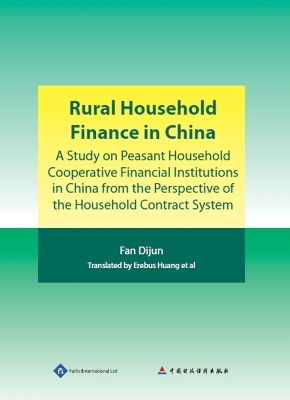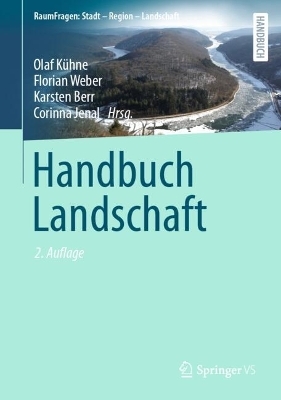
Rural Household Finance in China
Paths Publishing Group (Verlag)
978-1-84464-439-1 (ISBN)
This book analyses the financial and rural economic reform of China. Since China started the “revolution” of the rural economy in 1978 a series of reforms has been implemented in the area of rural finance focusing on institutional changes. Looking back on these “historical changes"", we can find that there is still a long way to go. China's Central Government has put forward a new concept in the rural financial system.
In this book, with cases from Fengyang County and Anhui Province, the birthplace of Chinese rural reform, the author tries to study how to set up a modern rural financial system under the framework of incentive compatible mechanism theory, which was advanced by Nobel prize winners L. Hurwicz, Myeson and Maskin.
This book summarizes the reform of China’s rural economics and the function of financial cooperation within this policy.
Few scholars have studied this subject thoroughly. As rural financial cooperation becomes the hot spot of China’s economic and finance reform, this book is both useful and unique.
This book contains nine chapters. Chapter 1 is an introduction in which the central issue has been put forward and a survey has been made on the literature of rural finance in China and abroad. It has outlined the framework and contents and introduced the research methodology and possible innovations. And it has also proposed the direction and major issues for further research. Chapter 2 illustrates the main theories on which this research is based, including peasant economy theory and the incentive compatibility theory. Chapter 3 analyses rural households’ financial needs under the Household Contract Responsibility System and investigates rural households’ economic behaviors, saving behaviors and lending behaviors, as well as their demand constraint. By analyzing the cause and goal of the exogenous financial institutional arrangements, and also the performance of its institutional supply, chapter 4 reveals the incentive incompatibility of rural exogenous financial institutions. Chapter 5 looks at the evolution of the rural endogenous financial institution and reveals the causes of its repression in the state’s preference of financial institution from a historical perspective. Based on the incentive compatible mechanism, chapter 6 puts forward two models of rural household cooperative financial institution, namely, peasant credit cooperative and federation of rural credit cooperatives. Based on analyzing the credit basis of rural household cooperative financial institution (village culture) and its compatibility with the family contract system, chapter 7 shows the effectiveness of the institutional arrangements of rural household cooperative finance with the game analysis of rural households in relation with the exogenous and endogenous financial institutions and also from a comparative analysis of transaction costs and competitiveness. Chapter 8 tries to apply the model of institutions into practice. Through pilot experiment, it investigates the setting up and operation of peasant credit cooperatives and the Federation of Peasant Credit Cooperative in Fengyang County of Anhui Province, the birthplace of China's rural economic reform. With a comparative analysis of the performance of rural credit unions and village-township banks, it proves the effectiveness of the institutional arrangements of rural household cooperative finance. Chapter 9 is based on theoretical research and case studies, and draws a conclusion, and proposes corresponding policy-orientations.
Dijun Fan, engaged in the post-doctoral study of countryside finance in the Faculty of Agriculture and Countryside Development of Renmin University of China.
Abstract
Preface
Chapter 1 Introduction
Chapter 2 Theories of Peasant Household Cooperative Finance
Chapter 3 Analysis of the Peasant Household Financial Needs Under the Household Contract System
Chapter 4 Paradox of the Reform: Exogenous Institutional Arrangement in Rural Finance
Chapter 5 Supply Repression: Endogenous Rural Financial Institutional Arrangement
Chapter 6 Model Selection: Peasant Household Cooperative Finance Institutional Model
Chapter 7 Analysis of the Efficacy of the Institutional Arrangement of Peasant Household Cooperative Finance
Chapter 8 Case Studies in the Household Contract System’s Birthplace: Fengyang County
Chapter 9 Conclusion and Policy Orientation
Appendix 1 Preliminary Statistical Results of the Survey on Fengyang County Peasants’ Needs
Appendix 2 Fengyang County Peasant Credit Cooperative Pilot Experiment Proposal and Management Measures
Appendix 3 Fengyang County Federation of Peasant Credit Cooperatives Set-up Proposal, Guidelines and Organization Structure Layout
Appendix 4 The First Federation of Peasant Credit Cooperatives Established in Fengyang County of Anhui Province (News Report)
Bibliography
| Erscheint lt. Verlag | 30.1.2016 |
|---|---|
| Sprache | englisch |
| Maße | 175 x 251 mm |
| Gewicht | 633 g |
| Themenwelt | Naturwissenschaften ► Geowissenschaften ► Geografie / Kartografie |
| Wirtschaft ► Volkswirtschaftslehre ► Makroökonomie | |
| ISBN-10 | 1-84464-439-1 / 1844644391 |
| ISBN-13 | 978-1-84464-439-1 / 9781844644391 |
| Zustand | Neuware |
| Haben Sie eine Frage zum Produkt? |
aus dem Bereich


